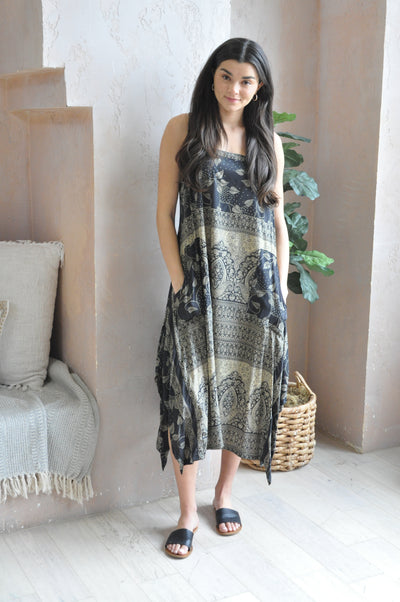The true story about the farming of cotton. - Interview with the author of 'Source My Garment.'
In our industry, we meet some real do-gooders, who truly value people and planet. Adila Coker is one of those darlings who has committed her world to do better for the farmers of India, and the earth. Read our interview below with this amazing human, who exudes infectious passion.
1) What drives you to do more for the environment and the cotton workers in India?
ADILA - Since i was a kid I have always had an appreciation for sewing and how things are made. Over the years I've been traveling back and forth from India and have learned quite a bit about the process, effort and care that goes into every stage of manufacturing clothing. The one disconnect I found is understanding where the cotton comes from.
You can get things certified but it doesn't say where the cotton came from. This lack of transparency was a red flag. As I was writing the book, Source My Garment, a step-by-step insider’s guide for entrepreneurs to build a prosperous, and sustainable fashion business, I dug deeper into the world of fair trade. It was heart-breaking to learn that more than 270,000 cotton farmers alone have committed suicide since 1995 (The Guardian). After I learned this, i felt it was my mission to support cotton farmers and help alleviate these ongoing issues,
2) What has been your biggest obstacle in educating consumers and retailers about sustainability and fair trade production?
ADILA - Consumers are often unsure as to what sustainability and fair trade really mean. There are many similarities and some key differences. Both support the values and principles of treating people fairly through trade. That means things like fair pay, safe working conditions, treating people with dignity and hiring adults – not children.
Certification is one key difference between Fairtrade and many fair trade programs. There is a certification process that’s required before a product earns a special Fairtrade label. Fairtrade’s mark means producers and businesses have met internationally agreed standards related to price and premiums, labour laws, inspection, and supply chain. Fairtrade is a system of certification that aims to ensure a set of standards are met in the production and supply of a product or ingredient.
For farmers and workers, Fairtrade means workers' rights, safer working conditions and fairer pay. For shoppers it means high quality, ethically produced products. Bananas, coffee, chocolate, tea, flowers, sugar and of course cotton - these are all items we often take for granted and are all examples of Fairtrade products.
3) If you were a world leader, what would be your first action item to combat the issue of sustainability in relation to fashion?
ADILA - Definitely I would change transparency in the supply chain. Full disclosure of all the people involved in the supply chain is important to protect workers.
4) What inspired you to start a brand of ethical products?
ADILA - After learning about the issues with cotton farmers and the number of deaths surrounding cotton I felt it was important to stand beside farmers and support them through the Fairtrade Canada certification.
5) Where do you get the most support from? For example; friends, family, government.
ADILA - I get a lot of support and encouragement from my customers. Just yesterday someone bought a gift certificate for a friend and the note said The Good Tee was one of her favorite brands. I appreciate all the feedback and kind words. It's really tough as a small company and we are always trying to make things better and make “good”.
6) What accomplishment are you most proud of with Good Tee?
ADILA - I was really surprised and excited, we don't do much marketing but found out we were in Buzzfeed and also Elle Magazine this year!
Adila is also the owner of The Good Tee. A basics collection based out of Toronto, Ontario, Canada.



